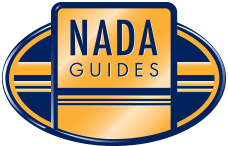
Finding the right financing for an RV can often feel like a complicated adventure. With various routes to consider, potential pitfalls, and the importance of understanding the ins and outs of loans, approaching RV financing can be daunting. This comprehensive guide aims to simplify the process, helping prospective RV owners secure the best financing options available.
Understanding RV Financing Basics
Securing financing for an RV is not as straightforward as it may seem. Unlike car loans, RV loans operate differently and often require different considerations. It's crucial to understand that RV financing involves not only the borrower’s creditworthiness but also the value of the RV itself. Approval rates depend on the RV's price, condition, and market value, making it essential to have a clear understanding of these aspects before pursuing financing.
The Role of Dealership Financing
Many RV dealerships prefer to provide financing in-house. This has become increasingly common as dealerships can make a commission from lenders for referring customers. While it might be tempting to secure financing independently, working through the dealership may lead to more favorable terms. Dealerships often have relationships with various lenders that can provide competitive interest rates and streamlined processes.
For those considering dealership financing, it's wise to ask the dealer to limit the number of lenders they approach to avoid multiple hard inquiries on your credit report. A good rule of thumb is to allow the dealership to shop around with three to five lenders at most.
Pre-Approval Importance
Getting pre-approved for RV financing can save time and headaches later. However, obtaining pre-approval requires careful planning and preparation:
-
Select Your RV First: Affordability hinges on the specific RV model chosen. Financial institutions not only assess the borrower's credit but also the value of the RV.
-
Credit Score Matters: Keep in mind that a credit score below 670 typically complicates financing options. Higher credit scores can unlock better interest rates.
-
Documentation Requirements: Prepare necessary documentation including proof of income (like pay stubs or tax returns), which is crucial for self-employed individuals who may need to demonstrate consistent income over a couple of years.
Down Payments and Their Impact
Making a sizable down payment significantly enhances financing prospects. Most lenders favor borrowers who demonstrate “skin in the game.” A common expectation is to put down 10% to 20% of the RV's purchase price, which can better position potential buyers for favorable loan terms.
Additionally, it’s also crucial to factor in potential additional costs such as warranties and insurance coverage. Many lenders allow 10% to 15% extra in financing to cover these additional expenditures.
Choosing Loan Terms
When dealing with RV loans, a variety of terms are often available. Length of the loan can range from 10 to 20 years, and each lender may have specific credit score requirements tied to these terms:
- 12-Year Terms: Typically require a solid credit rating of 720 or above.
- 15 to 20-Year Terms: These often necessitate even higher scores, sometimes reaching 780 or more, especially for older RVs.
Interest rates can vary substantially based on these terms and the RV's age, with older units potentially attracting higher rates.
Understanding Lender Preferences
Lenders often look for certain signals of creditworthiness. A debt-to-income ratio of under 45% is generally favorable, meaning that if your yearly income is $100,000, your annual debt should be no more than $45,000. This ratio plays a critical role in the lender’s decision-making process.
Ensuring that all documents and personal finances align favorably before heading into loan discussions can significantly improve the chances of approval.
Protection with Extended Warranties and Gap Insurance
Given the potential for costly repairs or depreciation, investing in extended warranties and gap insurance is highly recommended. These services can safeguard against unexpected expenses, especially if a new RV sustains damage shortly after purchase.
Gap insurance is especially vital as it covers the difference between what an insurance company pays out in case of a total loss and what the borrower owes on the loan.
Final Thoughts
Navigating the complexities of RV financing is critical for ensuring a smooth and rewarding experience. Begin by researching suitable RV models, securing pre-approval from lenders (preferably through a dealership), and being prepared with the necessary documents.
By understanding the nuances of financing and making informed choices, securing the right RV loan can transform the dream of RV ownership into reality. Keep these essential tips in mind to unlock the adventure of RVing with confidence.
About NoCredit Campers
NoCredit Campers specializes in providing affordable RV and camper financing solutions for customers with all credit backgrounds. Our mission is to help everyone experience the joy of RV ownership, regardless of their credit history. With a wide selection of campers, travel trailers, and motorhomes available through flexible rent-to-own and buy-here-pay-here options, we make your camping dreams a reality. Visit us at https://nocreditcampers.com to explore our inventory and learn more about our easy financing options. Adventure awaits – let NoCredit Campers be your gateway to the great outdoors!














